Kenya’s retired Bishop Philip Sulumeti of the Catholic Diocese of Kakamega who was interviewed when Cardinal Otunga was still alive agreed that the Cardinal underwent immense suffering in the early days of his Episcopate.
“He was our auxiliary in Kisumu for about four years and he had difficulty being accepted. Our church is human and the acceptance of him as a black Bishop was difficult in some quarters,” Bishop Sulumeti is quoted as saying in the book.
The 86-year-old Bishop whose retirement was accepted in December 2014 further said about the Kenyan Servant of God, “I think what led him to succeed was that humility in him. He is a very humble person and very difficult to fight with and that I think has carried him all along.”
According to Ogola and Roche, the attitude of the Priests towards Bishop Otunga pained the Bishop a great deal. “At the time, he just could not understand it. He suffered a great deal and lost a lot of weight.”
When the two asked the Cardinal whether the rejection shook his faith in God, he responded, “No! Never! I just kept quiet. I always kept quiet and that saved me. God would provide. I never wanted to be a bishop, it wasn't my choice, it was God's.”
(Story continues below)
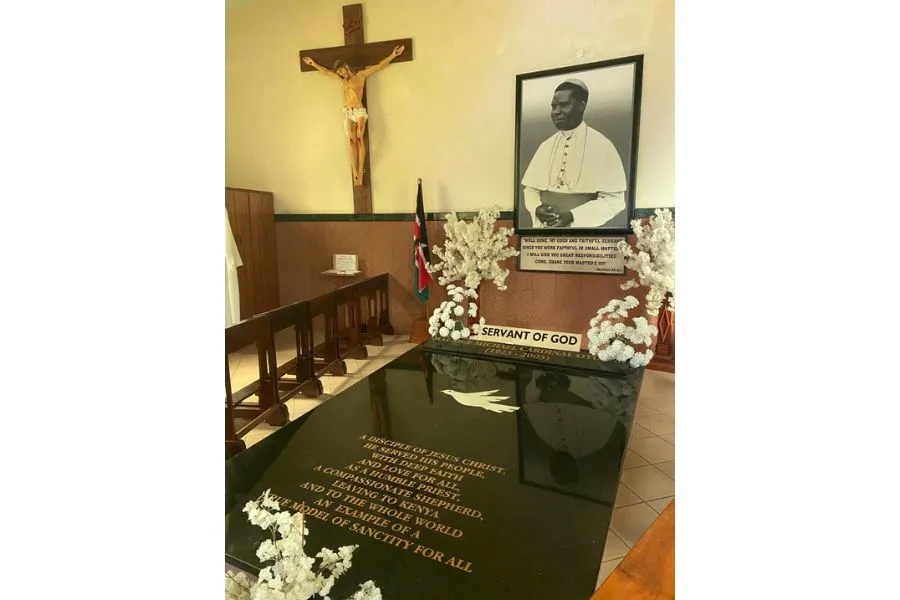 Credit: ACI Africa
Credit: ACI Africa
“I left it to God to be my protector, I never responded, or felt bitter. And when I first went to Kisii as a bishop and my diocesan priests watched to see how I was going to behave, I decided to entrust myself to the Holy Spirit. After all, we are living in the age of the Holy Spirit. And I have got my mother in heaven, Mary; I’ll be devoted to saying my Rosary,” Cardinal Otunga told the authors.
Not everyone was opposed to the new Bishop, the authors say, adding that while he faced open rejection from a section of Priests, many missionaries were with him, supporting him when he had problems with Diocesan Clergy who wanted non-native Priests gone.
The authors say that Cardinal Otunga was firm in protecting virtue among Priests, adding that five members of Clergy who wanted to own houses and to keep women left the Priesthood when the Bishop told them that he would not grant them the “free life” they wanted to have.
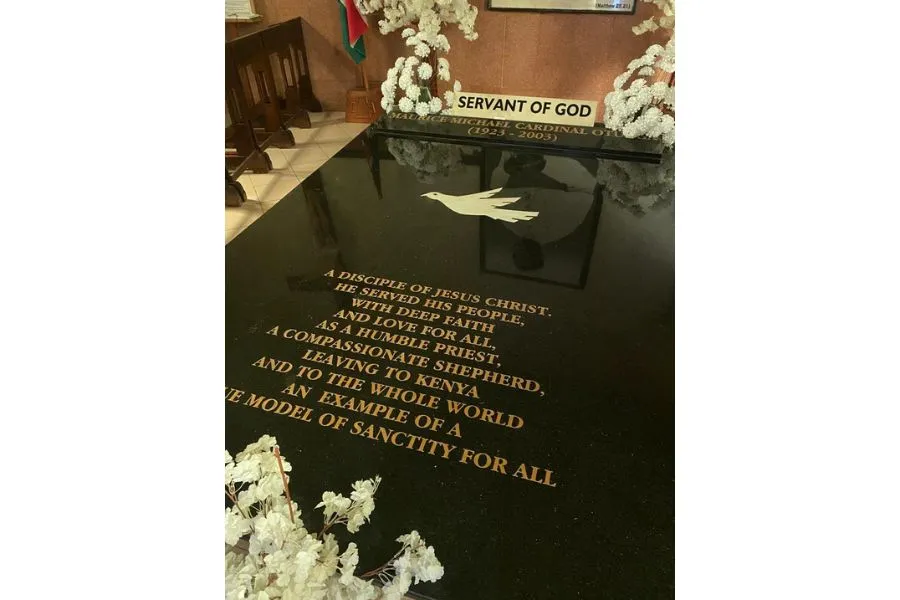 Credit: ACI Africa
Credit: ACI Africa
Ogola and Roche’s two-part book first covers Cardinal Otunga’s birth to a Kenyan prominent chief, as well as his childhood and schooling.
The second part details his ordination and early days in Priesthood, his years as Auxiliary Bishop of Kisumu and later as Local Ordinary of Kisii Diocese, Archbishop of Nairobi and elevation as Kenya’s first Cardinal.
The second part also covers Cardinal Otunga’s relationship with government in what the authors describe as an “emerging nation”.
Agnes Aineah is a Kenyan journalist with a background in digital and newspaper reporting. She holds a Master of Arts in Digital Journalism from the Aga Khan University, Graduate School of Media and Communications and a Bachelor's Degree in Linguistics, Media and Communications from Kenya's Moi University. Agnes currently serves as a journalist for ACI Africa.
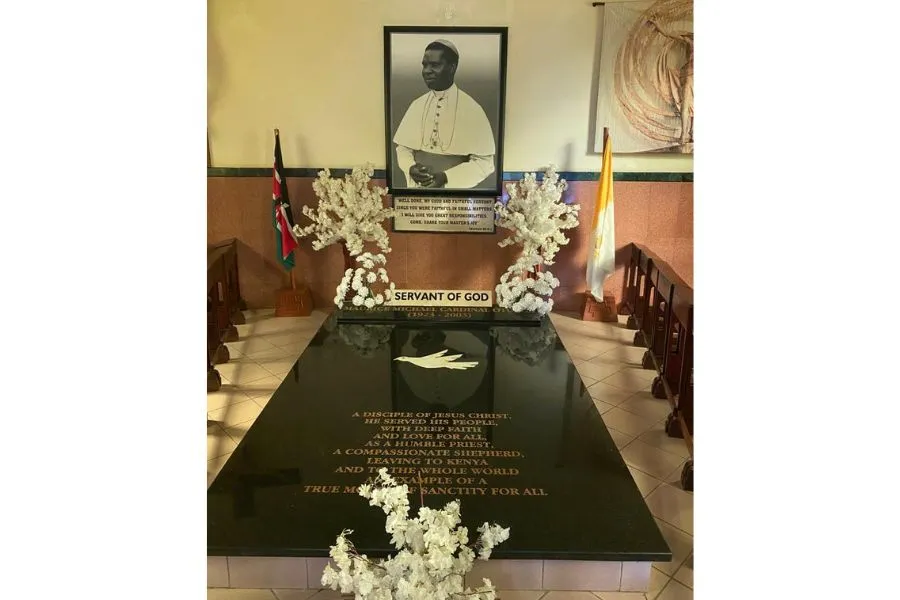 Credit: ACI Africa
Credit: ACI Africa



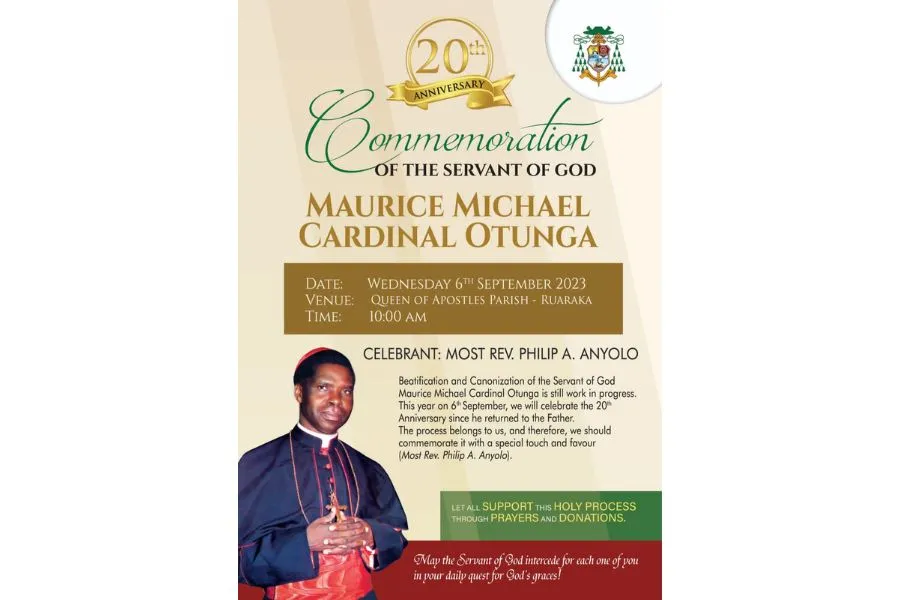 Credit: Paulines Publications Africa
Credit: Paulines Publications Africa
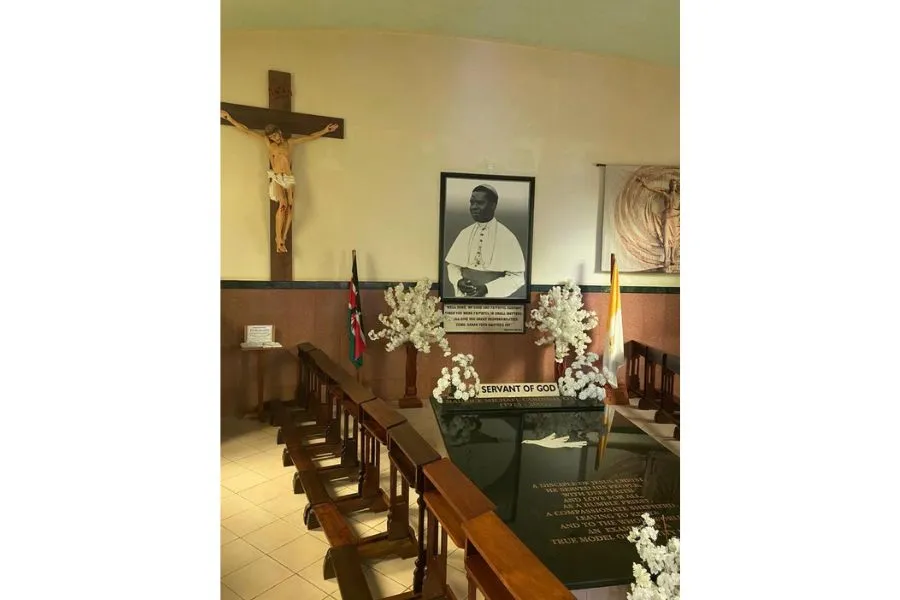 Credit: ACI Africa
Credit: ACI Africa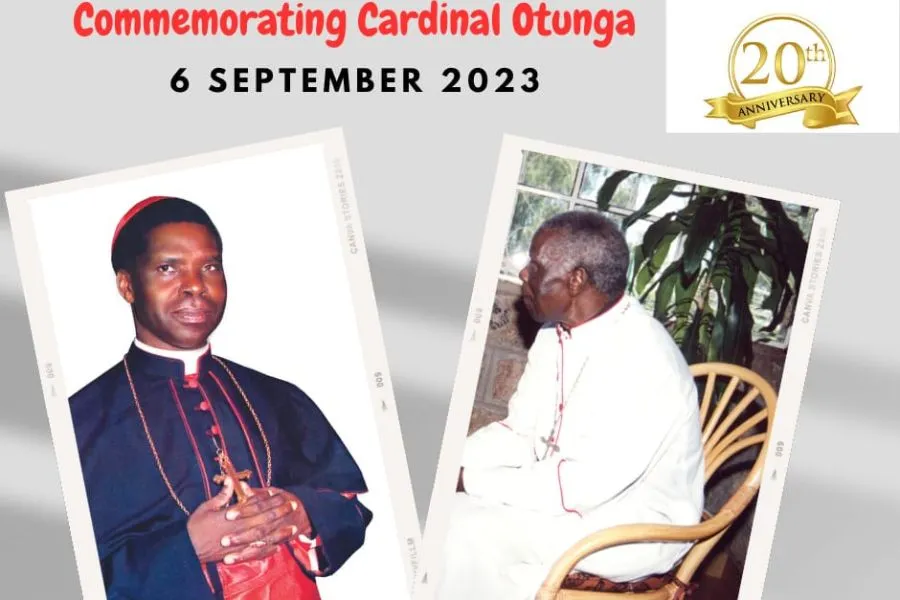 Credit: Paulines Publications Africa
Credit: Paulines Publications Africa Credit: ACI Africa
Credit: ACI Africa Credit: ACI Africa
Credit: ACI Africa


